The State Register of Plant Varieties Suitable for Distribution in Ukraine already includes 5 VNIS rapeseed hybrids, and every year the company receives new experimental hybrids for testing. As a rule, no more than 10 of them are selected - the most productive and with the desired traits.
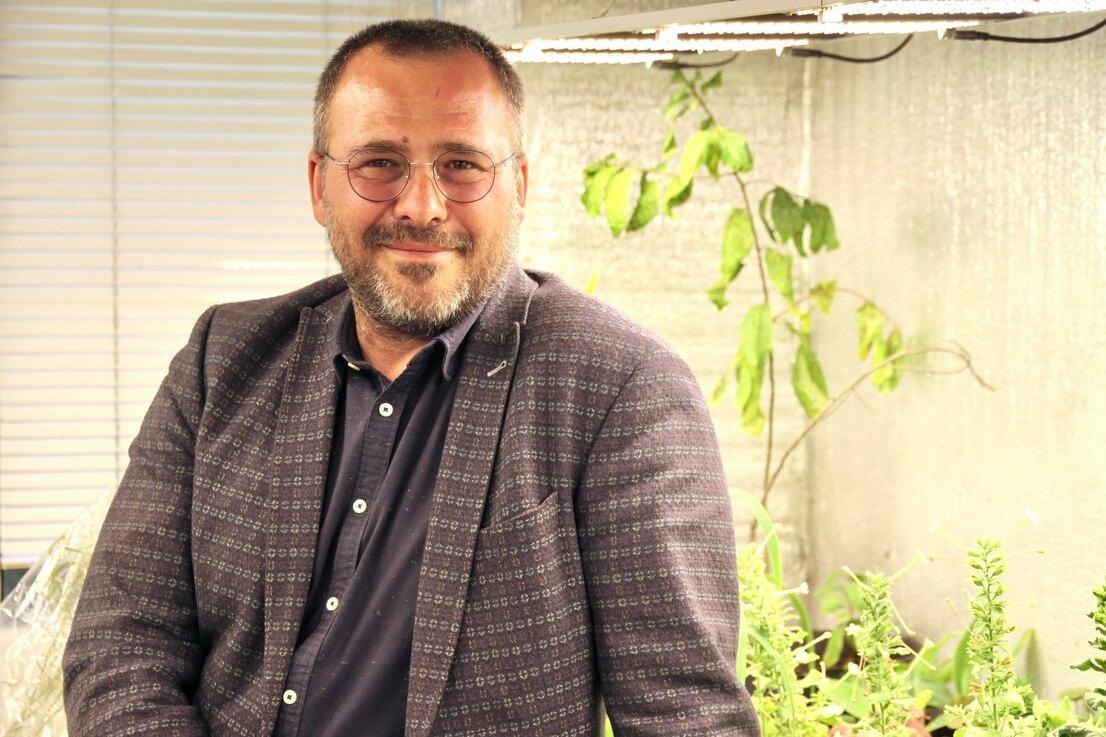
Rapeseed trends: hybrids in demand on the market
Working on the development of new hybrids, the Ukrainian Scientific Institute of Breeding carefully monitors the needs and demands of the market. Myroslav Pariy emphasizes that over the past three years, a trend has been characterized by resistance to the turnip jaundice virus in Europe.
“This disease is not new, but recently it has been actively spreading due to the political decisions taken in some countries to refuse to use neonicotinoid-based products. Other remedies are not as effective and do not cope with the problem. Therefore, in 2020, up to 90% of rapeseed was affected by this virus in some regions of Europe. Therefore, hybrid resistance to turnip jaundice virus is a current trend,” says Myroslav Pariy.
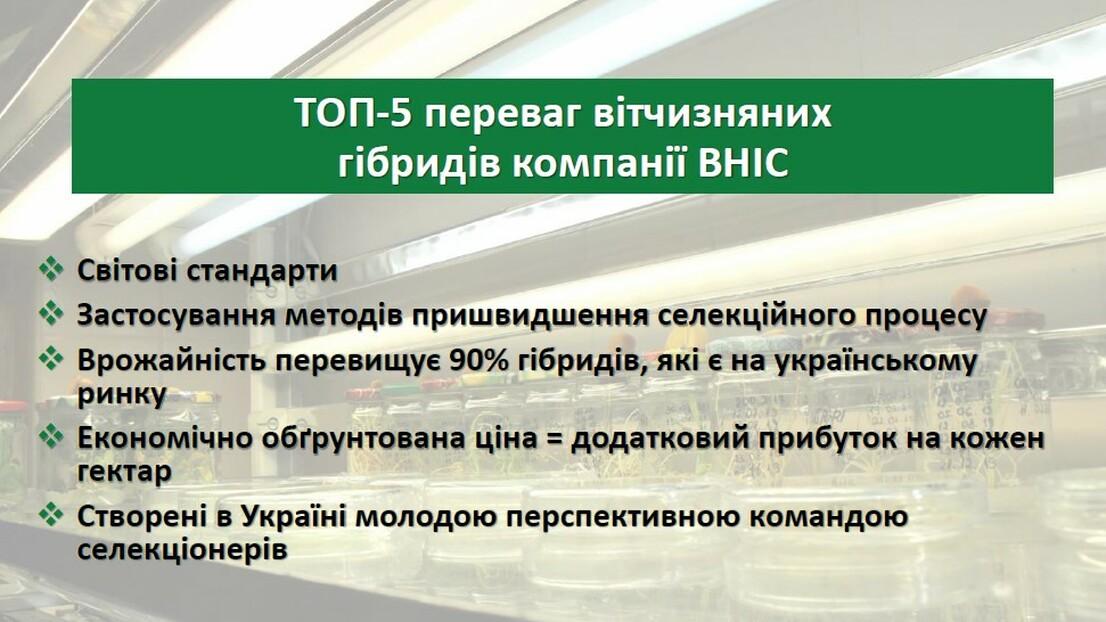
According to him, in Europe, the top 5 rapeseed hybrids contain a sign of resistance to this virus. In Ukraine, there is no such problem, because we are allowed to use products containing neonicotinoids. According to VNIS research conducted last year in different parts of Ukraine, none of the samples collected showed any disease damage or the presence of turnip jaundice virus.
Biotech rapeseed plants: when the future becomes a reality
A completely new area, which no one in Ukraine is engaged in except VNIS, is the development of biotech plants, including herbicide-resistant rapeseed hybrids. In this direction, they are working with sunflower, corn, and tobacco as model objects. Also, at the request of a German company, the project is developing dwarf spelt wheat.
The technology of creating biotech plants is to grow a separate whole organism from a single transgenic cell that will produce seeds
The research institute already has 150 new biotech rapeseed plants. So far, they are being grown in a greenhouse in accordance with Ukrainian law and are being tested for commercial viability.
According to Iryna Hnatiuk, a young scientist who works in the VNIS team and is involved in the development of biotech plants, the time required to work with winter and spring rape is different.
“It takes about a year to get biotech winter rapeseed plants with altered traits. This is due to the fact that winter rapeseed has to undergo the process of vernalization, which takes place in special chambers in the laboratory for 2 months,” she says.
Iryna Hnatiuk also adds that biotech plants are known to many as GMOs: they do not harm humans and other living organisms. These technologies are aimed at breeding new plants to increase agricultural production, improve crop yields and plant properties.
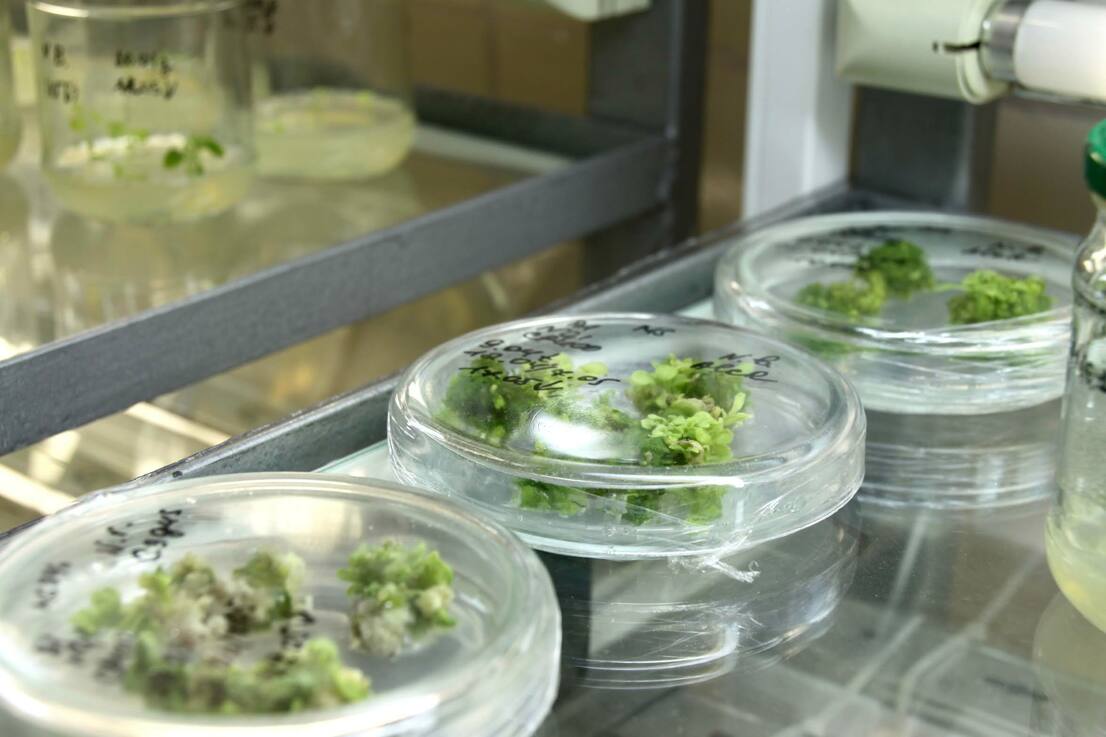
Since GMO issues are not regulated at the legislative level in Ukraine, VNIS is actively involved in the development and discussion of amendments to the draft law on the state policy of GMO regulation.
Accelerated breeding technology: how to get 6 generations of rapeseed in a year
In October last year, the Ukrainian Scientific Institute of Breeding launched a new project to accelerate breeding work and created an accelerated breeding laboratory. It was based on the development of an Australian scientist who published an article two years ago on the effect of light on plant growth.
“Rapeseed is a long-day crop, so if it is grown under constant light, it grows twice as fast as in the field. But such intensive growth, of course, requires increased plant nutrition,” says Andrey Sidorov, head of the rapeseed breeding department at VNIS.
“This technology allows us to produce 6 generations of spring rape and 4 generations of winter rape in a year. Due to the rapid growth of plants, the period from sowing a seed to harvesting is 55-60 days.
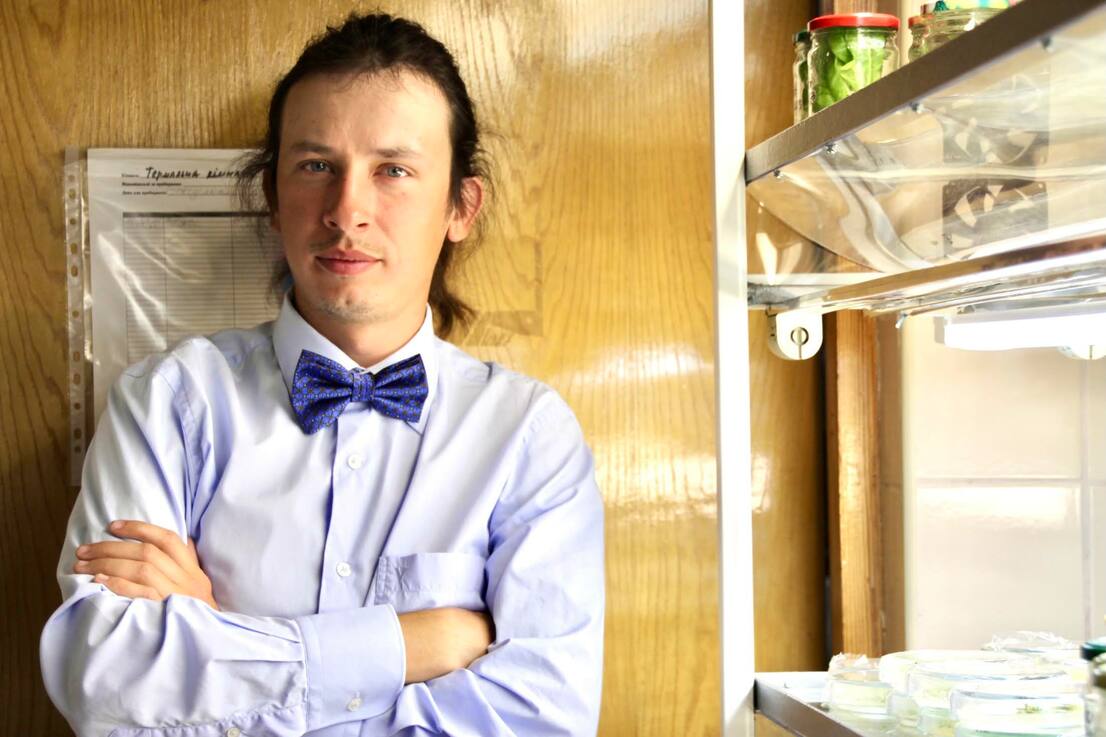
Now it is quite possible to create a hybrid in 5 years - starting with research, including registration and market launch. “We have already learned how to reduce our work and research, and only the registration process, which takes 3 years, delays us. The issue here is that everything needs to be tested in real field conditions, and this process cannot be accelerated,” explains Andriy Sydorov.
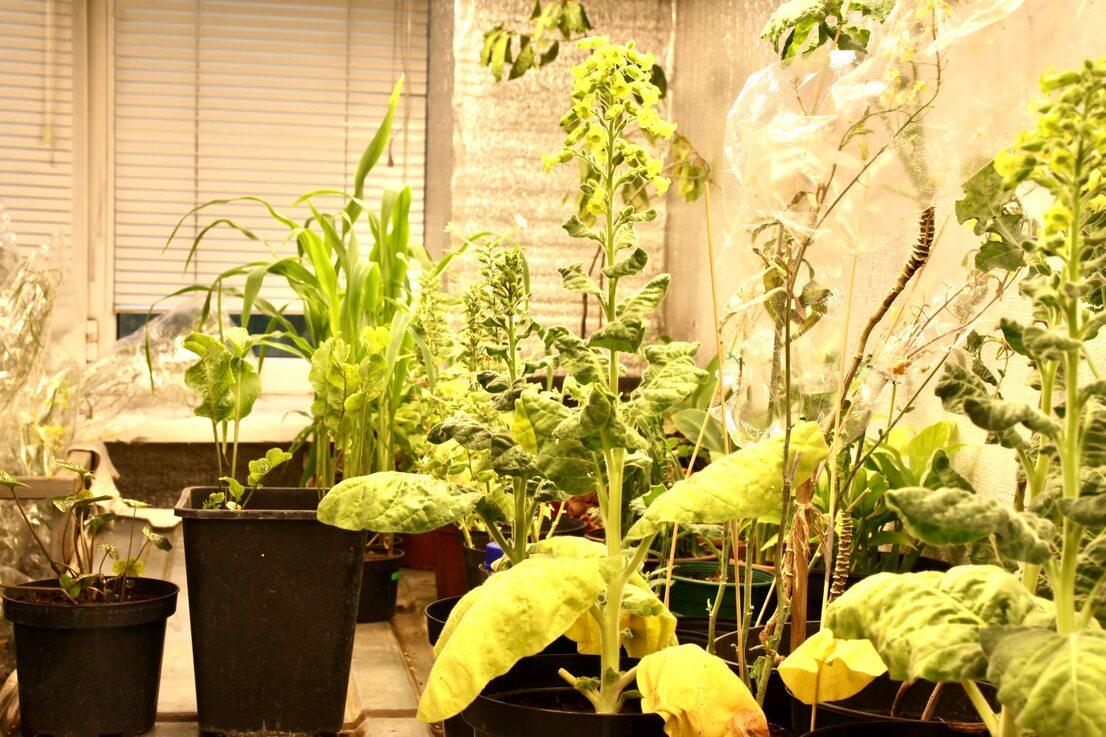
The future of breeding is in the hands of young people
The VNIS rape breeding team is quite young and consists of 4 scientists. The best graduates of NUBiP, Taras Shevchenko National University of Kyiv and Kyiv-Mohyla Academy are working on creating new varieties and hybrids.
Andriy Sydorov says that it is very difficult to find young specialists today. To attract good specialists to their team, they use all possible methods: they ask professors of agricultural universities to recommend active and interested students, invite them to practice, and attract them with new developments and innovative opportunities.
“We invite all interested undergraduate and graduate students from agricultural universities to do seasonal work in the summer, when the most active processes take place in the field: sowing, crossing, harvesting, and we invite all interested students to do an internship. After this stage, only a few remain - those with bright eyes, inspiration, and an unbridled desire to learn something. Then we involve them in all processes. Out of several dozen people, usually 1-2 remain. They receive their own parts of the projects and have all the necessary resources for development, because our laboratory's equipment meets the current global technological level,” says Andriy Sydorov.
By the way, a breeder from Ghana is working on the creation of Ukrainian hybrids, who received a degree in biotechnology from NUBiP and, after entering VNIS, decided to stay in Ukraine and become a breeder.
Breeding without borders
Myroslav Pariy is sure that it is irrelevant to limit breeding to one country today. After all, all genetic resources are now open and accessible.
“Rapeseed is a young breeding crop. Everything we have on the rapeseed market is of very close origin, so we cannot say that a variety or hybrid of rapeseed from a particular company is significantly different from others. After all, the vast majority of breeding companies work on the same source material and use the same lines to create hybrids,” says Myroslav Pariy.
VNIS breeders are interested in rapeseed because it is a kind of constructor with which they can work and create something new. Technologies have been developed for rapeseed that allow modeling its genome.
However, Myroslav Pariy immediately notes that rapeseed is not a basic crop for the VNIS breeding center, as it is not a basic crop for farmers. Every year, the area under crops depends on the availability of moisture - if there is no rainfall in the fall, there will be less crops. Therefore, the research institute works more with crops such as sunflower and corn.
VNIS has created about 20,000 corn hybrids, but they can only test 400-500 hybrids a year. Therefore, the company cooperates with farmers by providing a set of hybrids, and farmers test and select the best ones.
Myths about domestic breeding
The main myth is that Ukrainian seeds are of poor quality, says Myroslav Pariy.
“For 30 years, Ukrainian farmers have been told that varieties and hybrids of Ukrainian breeding are not good enough, that there is no Ukrainian science. Therefore, our farmers go to Europe to buy seeds from a global company, buy them and tell their colleagues that they are better there. This is a myth,” says Myroslav Pariy.
According to VNIS, last year, 30% of rapeseed acreage in Ukraine was sown with non-first generation varieties from Europe, but this year 80% of farmers switched to first generation hybrids.
“For years, Ukrainian farmers have been sowing hybrids of only two German producers, who are monopolists in the market. At the same time, farmers do not want to introduce or test anything new, being conservative. But in fact, they have no data to compare hybrid yields. There are very few experimental farmers who lay a demo field with 5-7 rapeseed hybrids to choose the best one later,” the scientist adds.
The company's hybridization sites, which are located on the lands of large agricultural holdings, show 95-98% hybridity under high-tech cultivation and have a yield potential of 7 t/ha.
The most common mistakes in growing rapeseed
The Ukrainian Scientific Institute of Breeding provides its farming partners not only with seeds but also with cultivation technology. They believe that the potential of rapeseed yields depends not so much on genetics as such, but rather on cultivation technologies, as there are many risks involved in growing rapeseed.
“If you do everything right and on time, you will get a result, but if you neglect it, you can lose the harvest. One missed process, for example, a late harvested predecessor, untimely plowing, or poor disking can lead to losses. If the insecticide treatment is delayed by 2-3 days, this will also affect the yield. There are a lot of risks. But they are all predictable,” says Andrii Sydorov.
According to him, farmers often make mistakes with chemistry when they choose the wrong dosage. Rapeseed can withstand it very well in the fall, but during the flowering period, aggressive chemicals harm it.
Andrii Sydorov also advises farmers not to sow rapeseed in dry soil, hoping for precipitation in the future.
“It is important not to overfeed rapeseed, because the excess will go to the mass, not to the seeds. Cracking is a production problem that needs to be controlled technologically and by harvesting time. For example, rapeseed can be harvested at night with high humidity. Such measures can significantly reduce losses in hybrids prone to shattering,” says Andriy Sydorov.
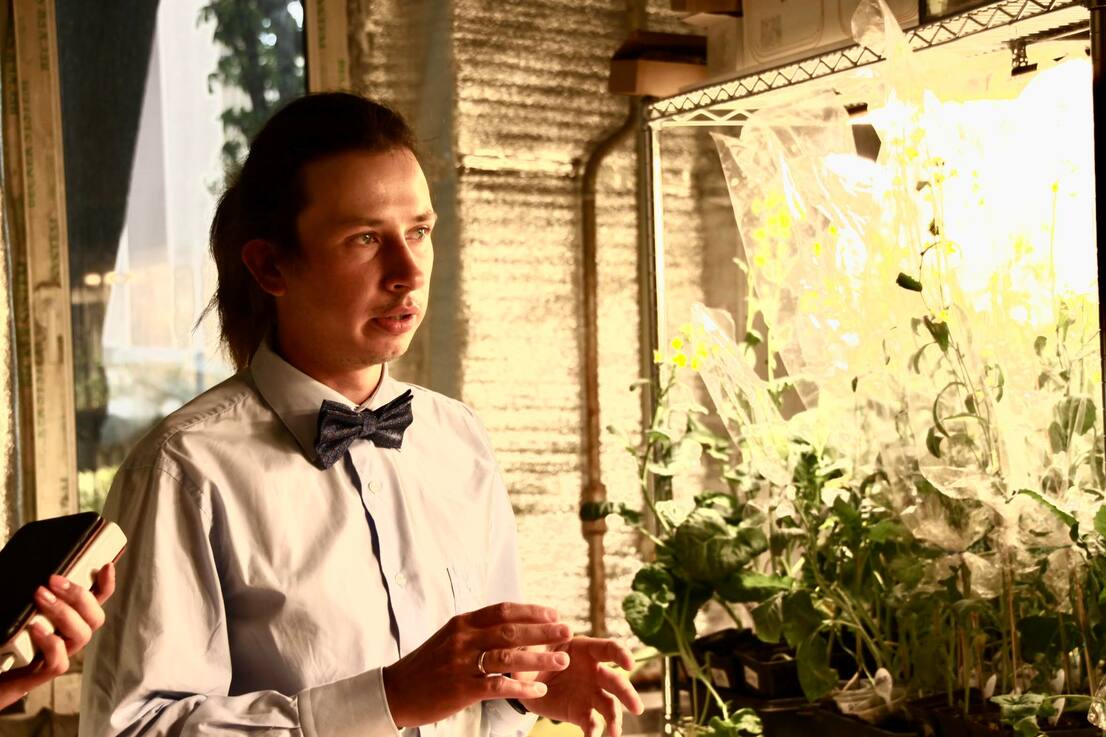
According to him, this year's winter-spring provided favorable conditions for rapeseed: the right amount of precipitation fell and the temperature was favorable - up to 20°C. The only thing is that there is a lot of moisture in the Central region, and the plants have started to grow, even breaking branches under the weight.
New directions and export prospects
In 2019-2020, the share of VNIS is 5% of the Ukrainian market for imidazolinone-resistant rapeseed. In classic rapeseed, the company's share is smaller, about 1%, as the Ukrainian Scientific Institute of Breeding has been commercially engaged in this crop for only two seasons.
Scientists are developing their own high-oleic rapeseed program through genome editing. The company notes that it is not yet feasible to commercialize the program, but it is necessary to have such hybrids in the portfolio. They also have a request from a foreign company to create high-erucic rapeseed, but the process has slowed down due to the pandemic.
“Using the classical breeding process, we can reach a maximum of 66.6 percent of erucic acid in rapeseed, and using genome editing and transgenic technologies, we can reach almost 100 percent oil content,” says Myroslav Pariy.
Growing high oilseed rape is a niche market, with only 50 thousand hectares of it grown worldwide. And creating such hybrids has become a challenge for VNIS breeders.
The company also notes that COVID has slowed down the process of registering VNIS rapeseed hybrids in the EU. However, the Ukrainian company's sunflower hybrids are already being registered in the European Union, and corn registration is scheduled for 2022.

 Choose a country
Choose a country